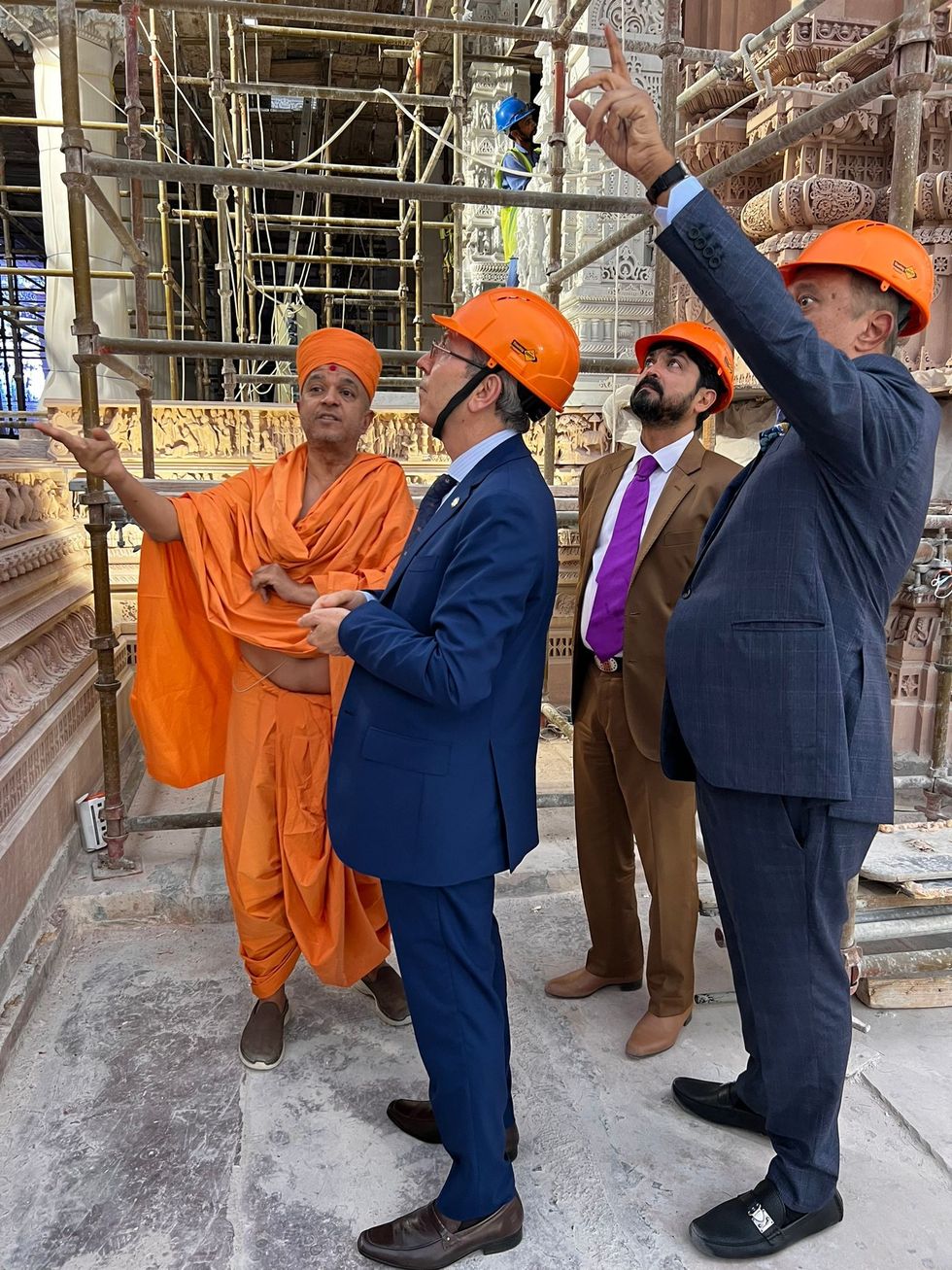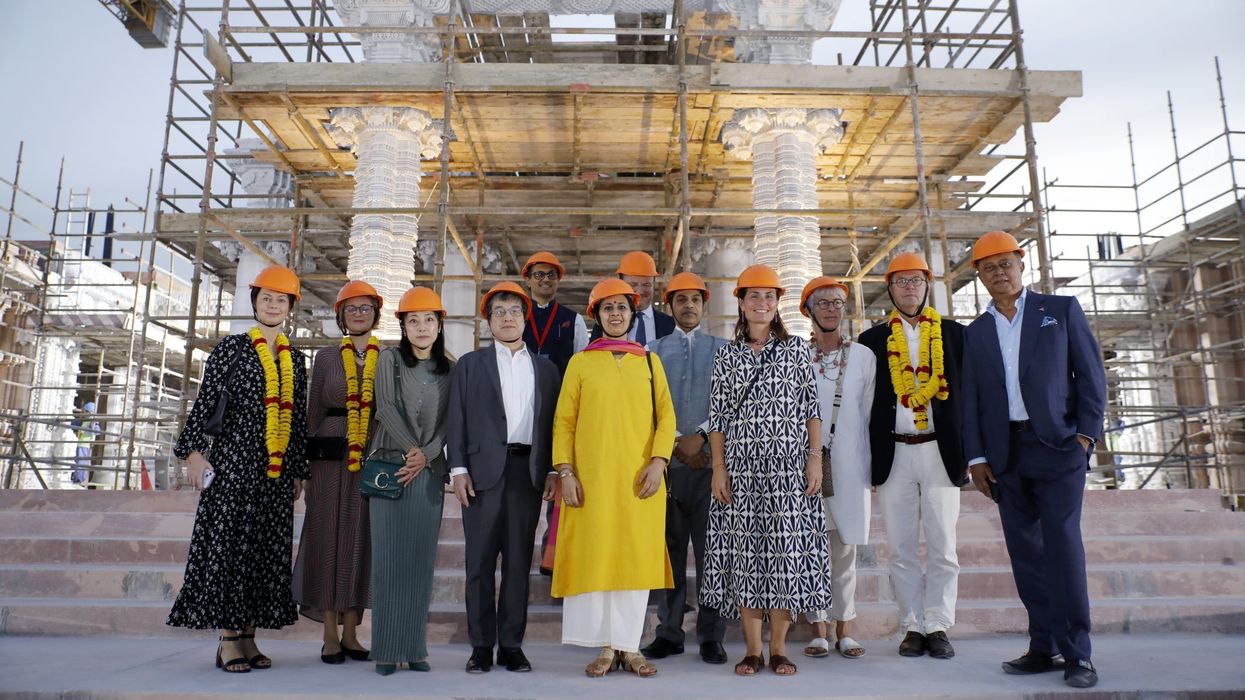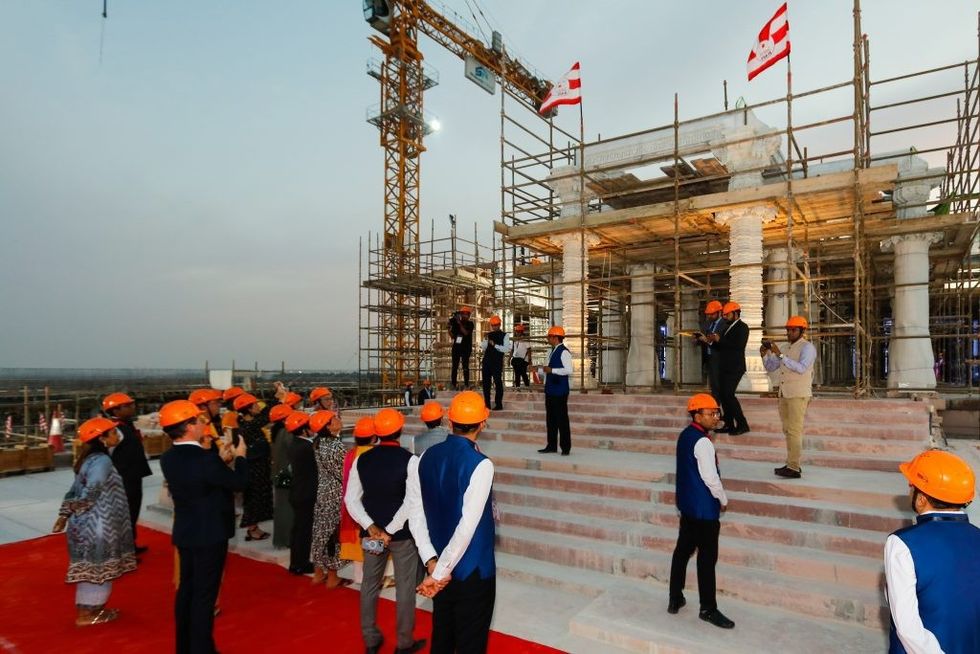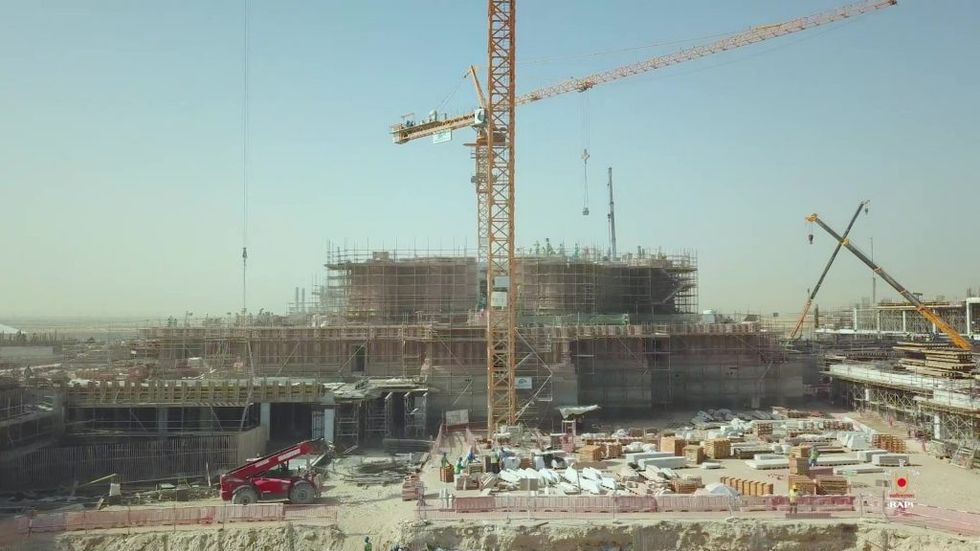Ambassadors from more than 30 nations visited the construction site of the BAPS Hindu Mandir Abu Dhabi.
Ashok Kotecha, Yogesh Mehta, Chirag Patel, Pranav Desai and the dedicated directors and volunteers overseeing the mandir's construction welcomed more than 85 guests, a statement said.
Indian ambassador to the UAE, Sunjay Sudhir, highlighted the long-standing friendship between India and the UAE, rooted in history, culture, and trade.
He said: “This Mandir represents the collective aspirations of faith of the broad Indian community living in the UAE, especially the saints and volunteers of BAPS who are serving tirelessly and selflessly to build this Mandir of tolerance and harmony.”

Through a video presentation, Indian external affairs minister Dr S. Jaishankar shared his hopes of what the Mandir would mean for UAE and the world as well as his deep respect for the vision and direction of the UAE leadership.
He emphasised that one of the most touching and fulfilling moments of his life was the announcement and now seeing the BAPS Hindu Mandir coming up.
In his address, Swami Brahmaviharidas warmly welcomed the ambassadors saying that the presence of the diplomatic fraternity and their families is a testament to the unifying power of faith and culture.
“Celebrating the past, addressing the present and re-calibrating the future, BAPS Hindu Mandir amalgamates ancient art and architecture, modern science and technology, universal values and spirituality. Your presence here sends a hopeful message of harmony and is a testament to the belief that dialogue, exchange and engagement can bring us all closer together and make this world a happier place," he said.
Ambassador of New Zealand, Dr Richard Kay conveyed his profound delight. He said, "The Mandir -a cultural asset will be a fantastic addition to the skyline of the UAE.”
Ambassador of the Maldives, Aminath Shabeena and Israel Ambassador Amir Hayek also remarked about the importance of the Mandir.
The BAPS Hindu Mandir will add new landmark to Abu Dhabi’s celebrated collection of culture, art and values –from the Sheikh Zayed Grand Mosque to the Louvre and the Guggenheim.







